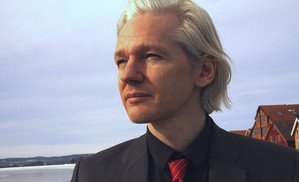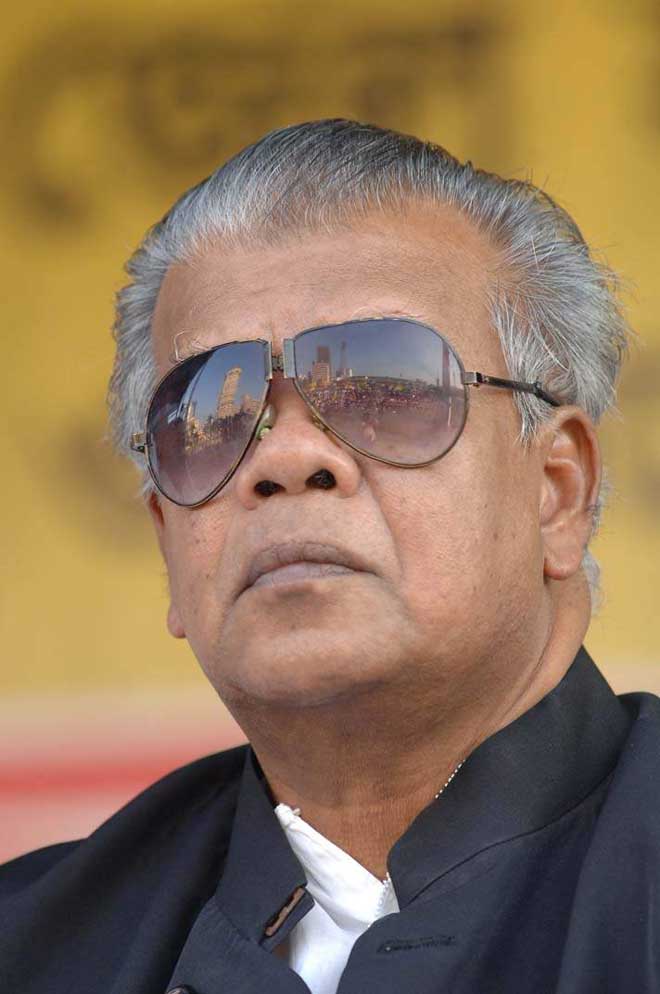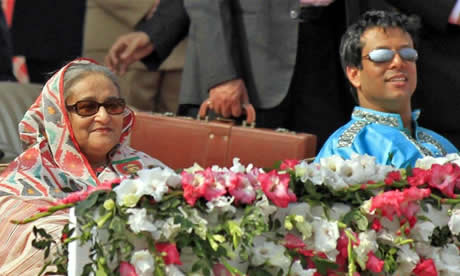WikiLeaks: Minister feared spies at helm of Russian energy giant
Published Date: 07 June 2011
By KENNY FARQUHARSON
BRITISH anxiety about Russia’s tightening grip on Europe’s energy supplies is revealed in leaked US diplomatic cables obtained by The Scotsman. The Wikileaks cables show that Britain believed the Russian gas giant Gazprom was being run by former Russian intelligence service chiefs, to further Russian influence.
Classified as “confidential”, one cable details a candid meeting in September 2008 between the UK’s then secretary of state for business, John Hutton, and Jeff Kupfer, US deputy secretary of energy.
The cable reports Labour politician Mr Hutton, who now sits in the House of Lords, “stated that the EU is never going to speak with one voice on energy security, pointing out that each country has dealt with supply issues independently. He pointed to the fact that Gazprom’s board was former Federal Security Service. These factors, Hutton said, contributed to the EU’s feeble response to the Russian invasion of Georgia”.
The papers went on to say that Mr Hutton “expressed concern that European Union moves to break up big energy companies in Eastern European countries – known in the industry as ‘unbundling’ – would play into Russia’s hands and put these countries under greater Russian influence.
“(Hutton] said that Eastern European governments fear that their assets will be purchased by Gazprom if they are forced to unbundle. However, they are also afraid to say no to the Russians if offers are made.
“Eastern Europeans need the European Commission to provide cover for them to keep Gazprom from purchasing their transmission assets.”
WikiLeaks energy cables: UK Energy Minister Wicks tells U/S Jeffery that “homegrown” solutions and diversity of supply are key
This is the text of a US diplomatic cable about UK energy security, obtained by WikiLeaks and made available to The Scotsman.
7 APRIL 2008 15:12
C O N F I D E N T I A L SECTION 01 OF 02 LONDON 000991
SIPDIS
NOFORN
SIPDIS
E.O. 12958: DECL: 04/01/2018
TAGS: ECON, ENRG, SENV, KGHG, UK
SUBJECT: UK ENERGY MINISTER WICKS TELLS U/S JEFFERY THAT
“HOMEGROWN” SOLUTIONS AND DIVERSITY OF SUPPLY ARE KEY
Classified By: A/ECONMIN SANDRA CLARK FOR REASONS 1.4 B & D
1. (C/NF) SUMMARY: UK Energy Minister Malcolm Wicks,
Department for Business Enterprise and Regulatory Reform
(BERR) told Under Secretary for Economic, Energy and
Agricultural Affairs Reuben Jeffery that the UK was taking an
assertive public and private position on climate change, but
that energy security was equally important to HMG (if not
necessarily to the UK public.) The UK will experience a
severe decrease in North Sea gas and oil stocks by 2020, and
will need to improve its diversity of supply as well as move
towards “homegrown” measures such as nuclear and renewables.
Wicks said the UK is concerned about Russia and Gazprom, and
is working hard within the EU and with Caspian players to
develop the Southern Corridor. END SUMMARY
2. (C/NF) Minister Wicks told U/S Jeffery on March 31 that
climate change and energy security went hand-in-hand for the
UK, and stressed UK leadership on climate change issues were
supported strongly by the British public. As evidence, Wicks
pointed to a bill in Parliament targeting carbon emission
reductions of 60% by 2050. Wicks stressed, however, that
energy security was equally important for the UK, although
less well-understood by the general public. The UK will see
its indigenous gas and oil stocks drop by eight percent per
year over the next several years, and will import 60-80
percent of its oil and gas supply by 2020. To address this
deficit the UK needs to ensure a diversity of supply, and has
been in discussions with Qatar and Norway, Wicks said.
3. (C/NF) In addition to diversifying supply, the UK is
building up its “homegrown supply” of nuclear and renewable
energy and is moving towards clean coal and carbon capture.
Wicks, also a Member of Parliament, said the UK is seeing
increased public and parliamentary support for nuclear energy
due to climate change and security concerns. He added that
the UK is also concerned about Russia/Gazprom, and is working
with the EU to develop a more robust European policy. “The
West needs to get smarter about energy”, Wicks told Jeffery,
and to focus more on Turkmenistan and the Southern Corridor.
4. (C/NF) U/S Jeffery explained that the U.S. is working hard
on energy issues, both domestically, and in support of
European efforts to diversify supply and create new routes to
markets. He explained it was important that the U.S. keep
pace with European efforts to protect its own interests.
Wicks expressed appreciation for USG support and commented
that the more pipelines there were the more routes and
trading relations for all of Europe, although the UK would
benefit only indirectly (he said if the Southern Corridor
were completed tomorrow very little gas would flow to the
UK.) Wicks recalled being impressed during his September
2007 visit to Turkmenistan with President Berdimuhamedov’s
openness to Western (and Chinese and South Asian) investment
and Foreign Minister Merodov’s intelligence, and noted
relations between countries in the region are also improving.
Richard Marriott, Senior Economist, BERR, stressed that the
UK believes it is companies that build pipelines, not
governments, but that the UK takes as a positive sign
Berdimuhamedov’s expressions of interest in working with
others to improve his country’s energy infrastructure. In a
sign of UK-Caspian cooperation, the UK is bringing over a
small delegation of Turkmenistani officials for meetings and
an energy conference in mid-April. The UK will focus on
educating the Turkmen on Production Sharing Agreements, and
will take them to Aberdeen, Scotland to see the oil and gas
facilities.
5. (C/NF) Wicks said one of the challenges for Turkmenistan
was dealing with diffuse, democratic governments and their
independent private sector companies. President
Berdimuhamedov had told Wicks that when China visited, they
would bring a pipeline project in one hand, and the authority
to ink the project in the other. However, when the West
visited, the governments did not necessarily speak for the
companies, and the decision-making process was much slower.
The UK is currently focused on Turkey’s role and said
U.S./EU/UK pressure is helpful, and is determining what the
market-based architecture of energy deals in the region would
look like. Jeffery stressed the need to move forward with
Nabucco now as a way to keep up the pressure to diversify and
show the Caspian region that the West is interested and
involved. In describing the need to cooperate with the
private sector, Wicks mentioned the difficulties of
determining whether certain UK energy companies were “batting
LONDON 00000991 002 OF 002
for the UK” or working solely for themselves and protecting
their interests vis-a-vis Russia.
6. (U) Wicks will be in Washington April 6-7 for meetings
with Energy Secretary Bodman before heading to Alberta Canada.
7. (SBU) U/S Jeffery and Ambassador Tuttle also met on March
31 with Tony Hayward, CEO, BP, to discuss the company’s
activities and Russian investigations. Hayward is heading to
Moscow soon to meet with private and public players to assess
BP’s interests.
8. (U) U/S Jeffery cleared this cable.
Visit London’s Classified Website: http://www.state.sgov.gov/p/eur/london/index. cfm Tuttle
Its WiKie-News®



































